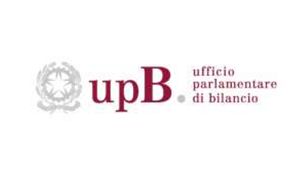(Finance) – TheParliamentary Budget Office validated the programmatic macroeconomic forecasts from the Nadef 2023. The announcement came from the president, Lilia Cavallari, during the hearing on the update note to the Def before the joint Budget Commissions of the Senate and Chamber of Deputies. “The forecasts – he declared – are in fact consistent with those of the PBO panel (CER, Oxford Economics, Prometeia and Ref.Ricerche, as well as the PBO itself), despite being in the high end of the range”.
The validation of programmatic macroeconomic frameworkunderlines the PBO, specifically concerns the year 2024, when the effects of the budget maneuver that the Government is preparing to define. In detail, “the forecast for real GDP growth in 2024 (at 1.2 percent) is within the panel’s validation range, although close to the higher value of the panel’s expectations” while “the estimate on the dynamics of the Nominal GDP (at 4.1 percent in 2024) appears cautious, as it stands below the panel median”.
The impact of the budget maneuver on economic activity in 2024 “is similar to the average one indicated by the panel and coincides with that estimated by the PBO”. In the two-year period 2025-26which is not subject to validation, the programmatic macroeconomic framework of the NADEF “appears acceptable, albeit at the limit as the growth of real GDP coincides with the upper limit of the panel’s expectations”.
The PBO then highlighted that the stabilization of the public debt envisaged by Nadef “is based on the realization of hypotheses subject to margins of uncertainty” such as “the full implementation of the interventions of the PNRR” and “the effective implementation of the announced retirement program”. “A greater budgetary effort than envisaged in the Nadef will be necessary if one of the hypotheses were to be realized only partially”, he noted the PBO. “In particular – he added – these prospects will be influenced by the full implementation of the interventions of the PNRR (since the margins for further postponements have been exhausted) and any changes during construction that could arise from the revision of the Plan, with an annexed chapter REPowerEUrecently sent to the European Commission”.
According to the PBO “there is also uncertainty about the actual implementation of the program resignation furniture announced in the Nadef, which should generate proceeds of at least 1.0 percent of GDP by 2026. These are significant amounts if we look at the data on privatizations from the years immediately preceding the pandemic crisis”.
Cavallari then declared that the effect of the tightening is not yet visible Super bonus started last February. In fact, from April to July the bonus credits maintained a similar trend to that of the previous period, before the limitations. “The first setback was recorded in August, which however is physiological because August is a particular month for construction. For the future we expect a reduction in the declarations of new investments due to the effects of the more stringent conditions launched in February”.
Finally, the Parliamentary Budget Office has reported that with the current rules of Stability pact “if a final deficit result of more than 3 percent for 2023 is confirmed and the Government were to confirm a violation of the 3 percent limit in 2024 and 2025, there is a risk that in the spring of 2024 the European Commission propose to the Council to open a PDE (infringement procedure, ed.) for Italy”.
